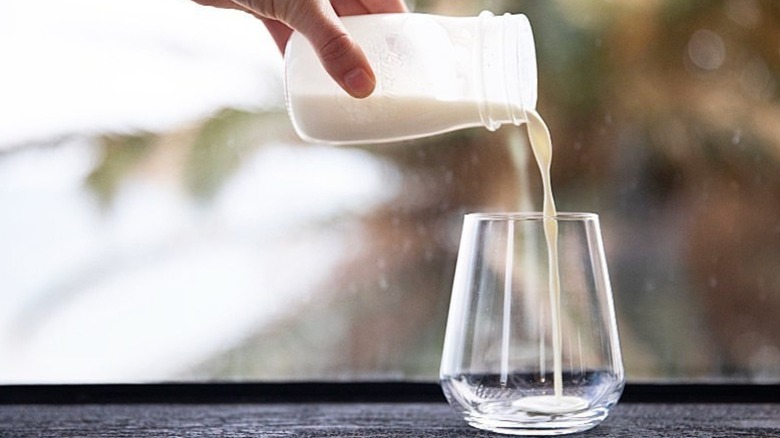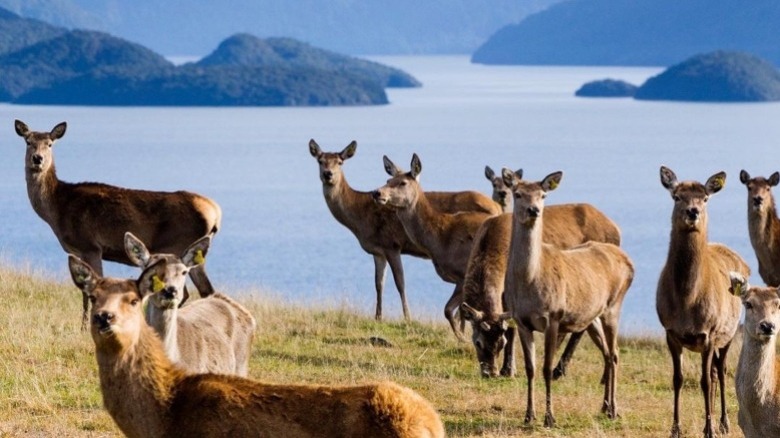Here's Why Deer Milk Isn't More Popular
No one puts deer milk on their Cheerios in the morning, and no one is encouraging kids to drink deer milk to build stronger bones. But why not? According to Mental Floss, deer milk offers more protein and less sugar than cow's milk, with a higher healthy fat content. And according to Pamu, a New Zealand-based agricultural company that has quickly become the biggest name in the fledgling deer milk industry, "deer milk has a delicate and deliciously creamy taste that leaves a silky mouthfeel."
So why isn't deer milk more popular? Per the Food and Agriculture Organization of the United Nations, the problem lies in the supply and production. There are far, far fewer deer on farms than cows, and deer produce less milk than cows on a seasonal basis: a few hundred liters for the average hind (female deer) versus 8,700 liters for the average cow (per Mental Floss). Back in 2018 when Pamu spoke with news website Stuff, the company had a herd of about 80 grass-fed red deer on New Zealand's South Island and had begun supplying deer milk (via milking machine) as a powdered ingredient to a handful of restaurants in cities like Auckland and Wellington.
Deer milk isn't yet in demand, but deer milk products?
Although deer milk remains very much a niche dairy product, its creamy pleasures currently limited to a small segment of discerning diners in New Zealand, other deer milk products may soon be very big indeed. The first step outside New Zealand came in December 2018, when Pamu signed a partnership deal with South Korean pharmaceutical company Luhan to provide deer milk for their cosmetic products (via Global Cosmetic News).
Pamu's entry into the cosmetics field has an unlikely origin story. According to the company's website, it happened after a milk technologist noticed the milk was making her hands softer and her fingernails stronger and healthier. Luhan is currently marketing the deer milk-fortified cosmetics under its New Origins label; offerings include skin care items like anti-wrinkle cream in the Deerest line. In November 2021, Pamu also announced a deal to market nutritional supplements in Vietnam, the active ingredient in which is Pamu's deer milk.
So even though deer milk alone still isn't popular, its use in other products certainly seems to be catching on.

